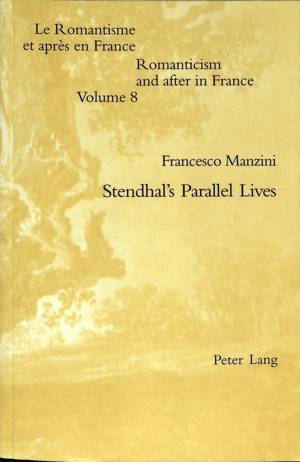
- Afhalen na 1 uur in een winkel met voorraad
- Gratis thuislevering in België vanaf € 30
- Ruim aanbod met 7 miljoen producten
- Afhalen na 1 uur in een winkel met voorraad
- Gratis thuislevering in België vanaf € 30
- Ruim aanbod met 7 miljoen producten
Zoeken
Omschrijving
This book deals with the important and hitherto neglected relationship between the works of Stendhal and Plutarch's Parallel Lives. Stendhal's readings of Plutarch are shown to inform his literary representations of Revolution and Empire, Restoration and Orleanism, as well as his theorizations of Romanticism. In particular, the Plutarchan concept of Parallel Lives is used to analyse one of the major themes of Stendhal's writing: the self-construction of individual identity, whether (auto)biographical or fictional, by means of the emulation (as distinct from the imitation) of heroic exemplars. As a consequence, the balance between irony and idealism often identified by critics in Stendhal's work is shown rather to be an imbalance, weighted in favour of an idealism derived from Plutarchan conceptions of heroism, particularly as they are represented in the Lives of Julius Caesar and Marcus Brutus.
Specificaties
Betrokkenen
- Auteur(s):
- Uitgeverij:
Inhoud
- Aantal bladzijden:
- 498
- Taal:
- Engels
- Reeks:
- Reeksnummer:
- nr. 8
Eigenschappen
- Productcode (EAN):
- 9783039101481
- Verschijningsdatum:
- 2/04/2004
- Uitvoering:
- Paperback
- Formaat:
- Trade paperback (VS)
- Afmetingen:
- 145 mm x 222 mm
- Gewicht:
- 669 g

Alleen bij Standaard Boekhandel
+ 245 punten op je klantenkaart van Standaard Boekhandel
Beoordelingen
We publiceren alleen reviews die voldoen aan de voorwaarden voor reviews. Bekijk onze voorwaarden voor reviews.











